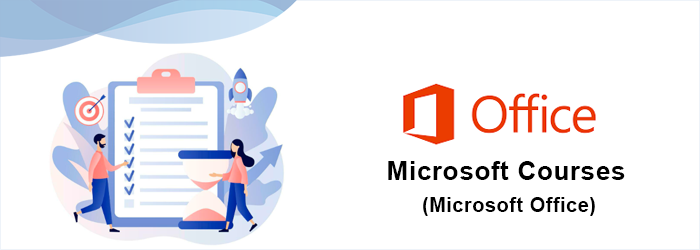

Microsoft Office is a suite of productivity software developed by Microsoft Corporation.
It includes a variety of applications designed to help users create, edit, and manage
documents, spreadsheets, presentations, and more.
Microsoft Office is a full-featured computer software package made to support
professional content creation and sharing.
The software in the Microsoft
office suite makes it simple and quick to create professional documents, spreadsheets,
and presentations.
Microsoft Office certification training is suitable for:
Eligibility criteria for Microsoft Office certification typically include: